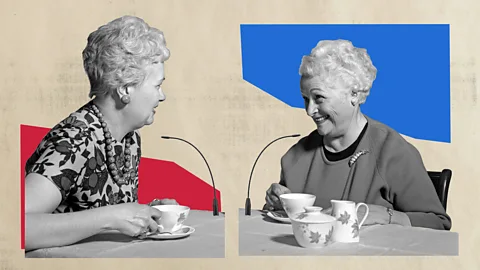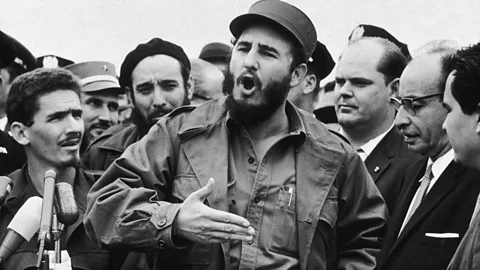As the US election approaches, few would disagree that political and social issues are becoming increasingly polarised. Finding common ground on issues such as the environment, foreign policy and gun control appears to be difficult, according to some research. But what is this doing to people’s friendships?
According to the prevailing narrative, the severe differences in worldview are causing our social networks to fracture, resulting in many broken friendships. But is this objectively true? And if so, what psychological factors are most likely to predict the changes to our social networks?
This is what psychologist Ian MacRae and I hoped to explore with our Friendship Study – a short questionnaire offered to BBC.com readers in July and August this year. We were delighted that 1,912 of you participated. For our first analysis, we examined answers from the US and Canada – the primary audience of the BBC international website – with 726 responses from people living in these countries, aged from 19 to 90. We then explored whether the same patterns could be seen in other regions.
First, some caveats: our respondents were limited to people who read BBC.com. Our participants were also self-selecting, meaning that they are not a representative sample of the entire population. Nevertheless, their responses do fit with broader trends noted in the academic research, which suggest that we are often overly pessimistic about other’s intentions in social interactions.
On average, our participants did not report finding it harder to talk about politics today than in the past. Many people reported gaining friends, as well as losing them, due to these discussions, suggesting that political engagement can sometimes enhance connection. In line with previous studies, however, we found they overestimated how much others wanted to create an argument over differences in opinion – an assumption that may hamper the free exchange of ideas and potentially stand in the way of forging new friendships.
If you would like to fill in the questionnaire and receive personalised results, before you read a more detailed discussion of our participants’ responses, it is available here.
Size and structure of social networks
Our first questions asked participants to describe the general impact of political conversations on their relationships over the past 10 years – by rating a series of statements on a five-point scale from one (strongly disagree) to five (strongly agree).
Surprisingly, the average participant responded fairly neutrally to the statement: “It is harder for me to discuss political issues today, than it was 10 years ago”. They were slightly more likely to agree with the statement: “Other people find it harder to discuss political issues today, compared with 10 years ago” but it was a very small difference. Overall, our participants did not consider political disagreement to be a recent phenomenon.
Nor did they appear to have strong views about the overall effects on their social networks. On average, they were just as likely to agree with the statement “my conversations about political issues have caused me to gain social connections” as they were to agree with the statement “my conversations about political issues have caused me to lose social connections”. Overall, their perceived gains and losses were almost exactly equal. We don’t know the exact nature of these changes, but it is plausible that people are breaking some ties with the people of opposing views, and then building new friendships with those that have similar opinions.











No comments yet. Be the first to comment!